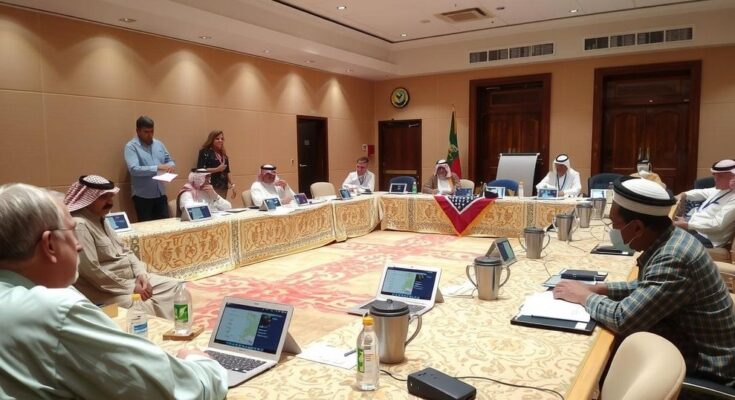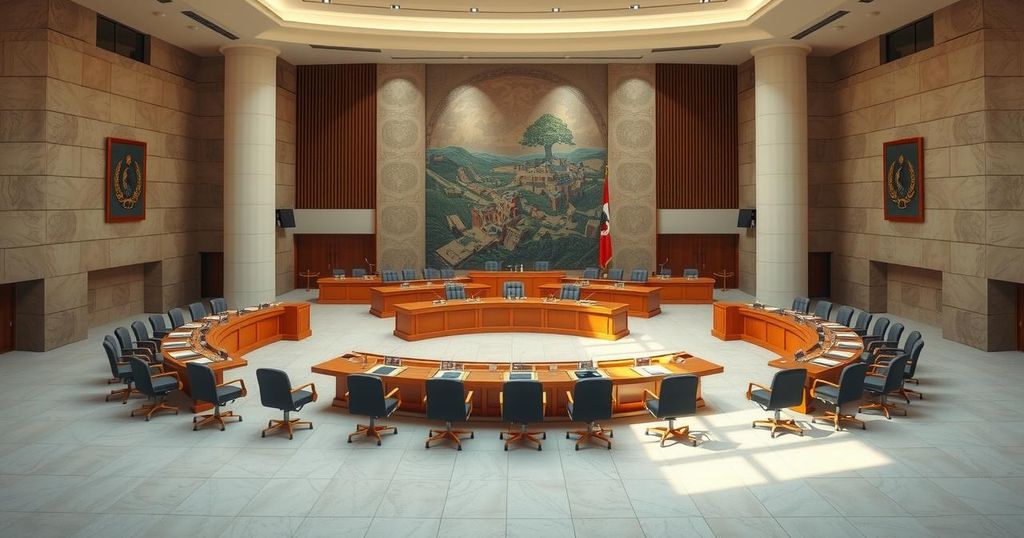At COP16 in Riyadh, the UNCCD talks failed to yield an agreement on a global drought strategy. The discussions revealed significant divides between developing and developed nations regarding commitments. Future plans aim for completion at COP17 in Mongolia in 2026, highlighting urgent needs for restoration and investment amid rising drought impacts.
The recent United Nations Convention to Combat Desertification (UNCCD) meeting, COP16, held in Riyadh, Saudi Arabia, concluded without achieving a consensus on a global strategy to address drought. Although the 12-day discussions among the representatives of 196 countries and the European Union fostered considerable dialogue, the participants acknowledged the necessity for further deliberations to establish a comprehensive drought framework, with a goal to finalize it by COP17 in Mongolia in 2026.
The failure to reach an agreement illuminates the ongoing challenges faced by international climate talks, particularly when considering previous unsuccessful negotiations in Colombia and South Korea regarding biodiversity and plastic pollution. UNCCD’s Executive Secretary Ibrahim Thiaw remarked on the need for additional time to explore viable paths forward. The UN highlighted that droughts, exacerbated by human-induced environmental degradation, result in global costs exceeding $300 billion annually and are expected to impact 75 percent of the world’s population by 2050.
The discussions also revealed a notable divide between developing nations and developed nations. Certain African delegates expressed their desire for a binding protocol to ensure accountability and comprehensive planning across governments. In contrast, representatives from wealthier countries appeared to favor a less stringent framework, leaving many developing nations dissatisfied. Indigenous representatives echoed these sentiments, advocating for stronger commitments.
Despite these setbacks, Saudi Arabia’s Environment Minister, Abdulrahman al-Fadley, articulated the Kingdom’s commitment to addressing desertification, highlighting several initiatives aimed at combating this critical issue. The UNCCD has emphasized the urgent need to restore 1.5 billion hectares of land by the decade’s end, requiring an investment of $2.6 trillion globally.
Global drought is an escalating concern that affects millions annually, prompting international attention at forums such as the UNCCD. COP16 in Riyadh aimed to enhance collaboration among nations to develop effective measures against drought. This year’s talks witnessed discontent among developing nations over the lack of binding agreements, reflecting a broader struggle within global climate negotiations to balance responsibilities between wealthier and developing countries. Significant investments and restorative measures are deemed necessary to mitigate the impending drought crises projected to impact a large portion of the global populace.
The UN’s COP16 talks in Riyadh reflected ongoing discord in international climate negotiations, particularly regarding commitments to combat drought. The absence of a binding agreement has highlighted the disparities between developing and developed nations, emphasizing the need for a unified approach to climate resilience and ecosystem restoration. Moving forward, COP17 in Mongolia will be pivotal in addressing these concerns, as nations strive to agree on a protocol that holds all governments accountable for their climate actions.
Original Source: www.aljazeera.com




